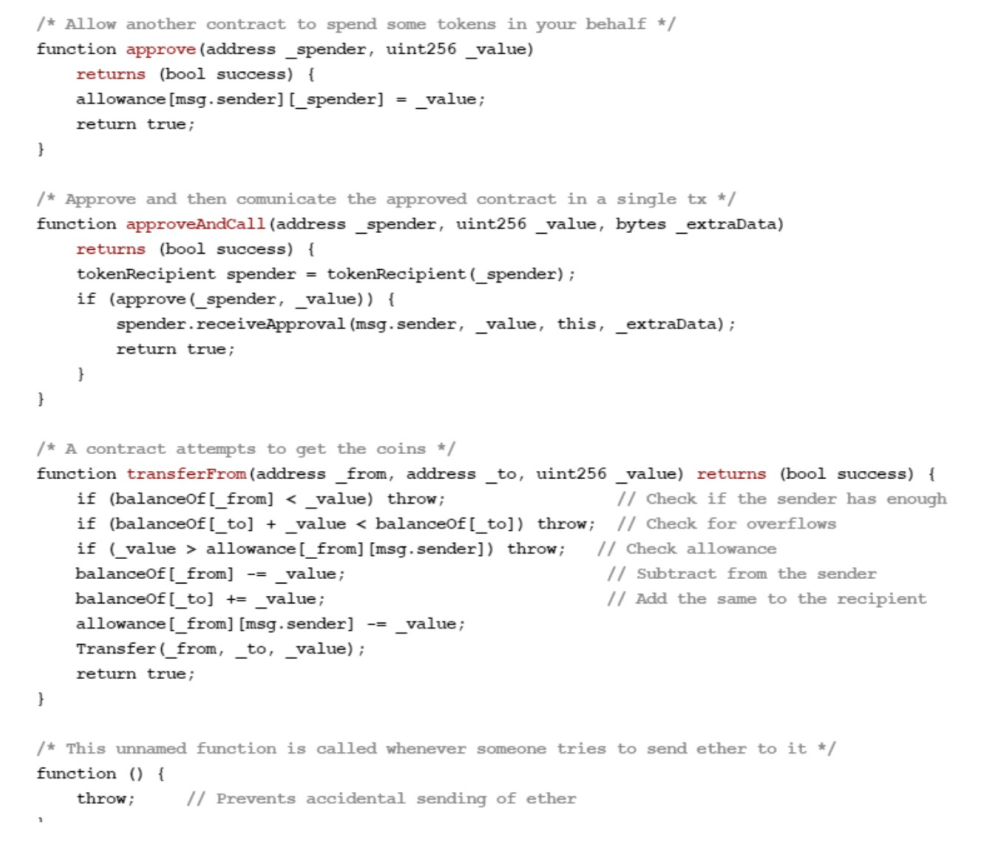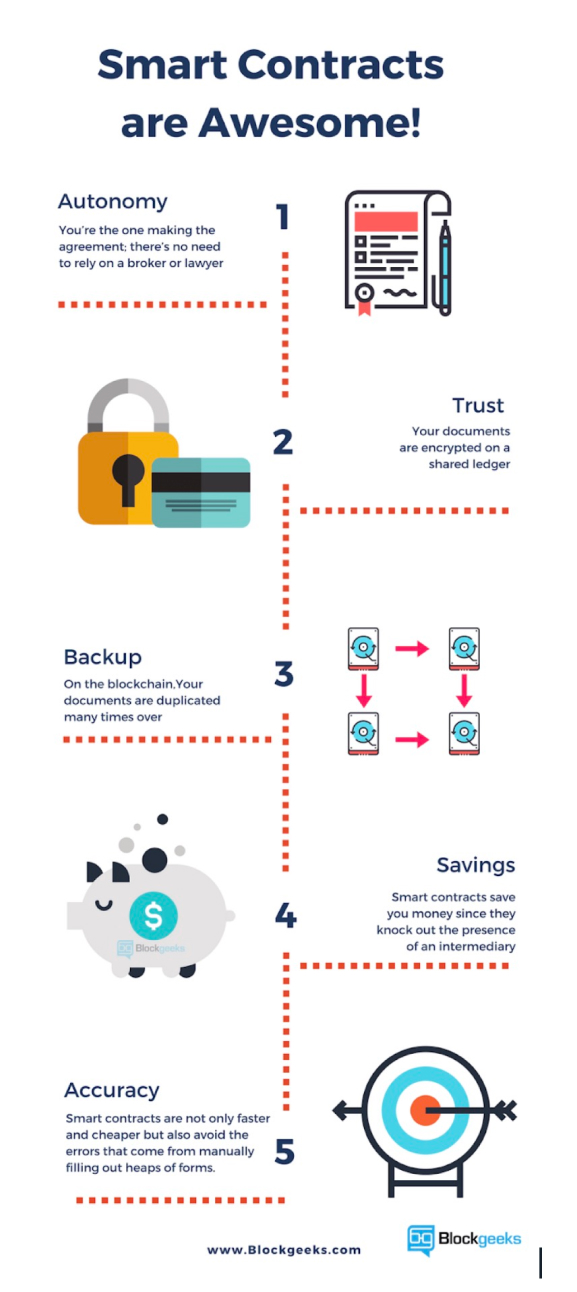What Are Smart Contracts
Smart Contracts are digital contracts that is converted into computer code and stored on the blockchain. What makes smart contracts unique is the removal of the “human element” (to an extent), making it very difficult, if impossible, for third-party interference and manipulation.
Smart contracts allow for an individual to exchange money, property, shares, or anything of value in a transparent, conflict-free way while avoiding the nuances of an intermediary or third-party.
Smart contracts aren’t “technically” a new concept, having roots dating back to 1994. The concept of a “smart contract” is predicated upon cryptography. They can be used in various instances, ranging from financial derivatives to insurance premiums, breach contracts, property law, credit enforcement, financial services, legal processes, and of course crowdfunding agreements.
Smart contracts allow for an individual to exchange money, property, shares, or anything of value in a transparent, conflict-free way while avoiding the nuances of an intermediary or third-party.
This has been said to be the technology that will replace lawyers. While that sounds fancy and well, this is technically impossible, as the industry still needs lawyers to help facilitate negotiations to be able to get to the point in time where a smart contract is appropriate to implement. The two go hand-in-hand.
The History
In 1994, a legal scholar and cryptographer named Nick Szabo discovered that a decentralized ledger could be used for smart contracts. These are nothing more than “code” which are self-governing and execute upon the occurrence of certain events.
How It Works
The best way to understand how smart contracts operate is by the “apartment rental” example Ethereum’s founder Vitalik Buterin explained at a DC Blockchain Summit:
Suppose you rent an apartment from me. You can do this through the blockchain by paying in cryptocurrency.
1. You get a receipt which is held in our virtual contract; I give you the digital entry key which comes to you by a specified date.
(If the key doesn’t come on time, the blockchain releases a refund)
(If I send the key before the rental date, the function holds it releasing both the fee and key to you and me respectively when the date arrives.)
2. The system works on the If-Then premise and is witnessed by hundreds of people, so you can expect a faultless delivery. If I give you the key, I’m sure to be paid.
(If you send a certain amount in bitcoins, you receive the key)
3. The document is automatically canceled after the time, and the code cannot be interfered with either of us without the other knowing since all participants are simultaneously alerted.
The Contract
When an event outlined in the code of the smart contract is triggered (price change or expiration of a contract), then the code executes.
So, what does a smart contract actually look like?

Source: Example of a smart contract on Ethereum.
In the example above, the smart contract stipulates that the creator of the contract be given 10,000 BTCs, allowing anyone with enough balance to distribute these BTCs to others.
Why Use a Smart Contract?
Contrast to a traditional contract, a smart contract removes many of the barriers created simply because of the “human” element.
#1 - Autonomy
The best part about creating a smart contract, is that you don’t need to rely on a third-party such as a broker, lawyer, or other intermediaries to confirm. You’re the only one making the agreement, in control of the terms and triggering events--therefore, any errors are considered to be user errors upon the contract’s formation.
The purpose behind this feature is that it completely removes any danger or risk of manipulation or fraud by a third-party, because the network manages it completely--not a human. However, the downside to this, is user error--if something is created/entered wrong before the contract’s execution, of course it will create issues down the road.
#2 - Trust
The blockchain is an immutable ledger. Your smart contract encrypts your documents or items of value on a shared ledger. Therefore, it can never “be lost”, a limitation in traditional contract law.
#3 - Backup
Since the smart contract runs on the blockchain, the documents contained therein are duplicated many times over.
#4 - Security
This couldn’t be more secure, as the smart contract is predicated upon cryptography, encrypting your documents. While incredibly difficult to hack or compromise, it would take an extremely skilled and abnormally intelligent hacker to actually crack the code and infiltrate the contract. Remember, everything is hackable, no matter the difficulty.
#5 - Speed
This is a timesaver and a money-saver. With traditional contracts, you’d have to spend alot of time to manually process the documents.
By using software code to automate tasks, smart contracts save hours off standard business practices, while reducing the number of third-party intermediaries you would need to bring into the transaction, if any.
What’s the Industry Saying?
Smart contracts are definitely the future when it comes to automating and encrypting business transactions. Remember, this does not replace certain experts, like lawyers and brokers--but simply reduces the amount of times you would need them involved with any particular transaction.
